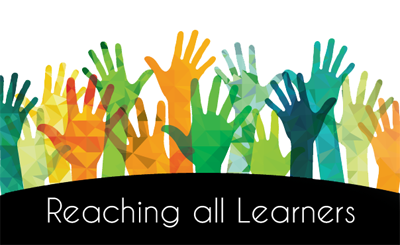Welcome!

Over the last three years the PE Academy has been advancing the idea that the strength of the Process Education philosophy lies in the fact that it works for a variety of learners – GEN Z, Adult Learners, Under-represented, International Students, Honor Students, “At-risk” Students, Students with Disabilities, and students in STEM fields. The 2019 conference will feature Process Education programs from across the world and explore how and why they are able to accomplish an increase in Student Success and Equity. The lens of Universal Design will be applied to the research questions on human performance and the elements of the Classification of Learning Skills. Academic programs, courses, and instructional activities will be studied to understand how Learning to Learn and Self-growth are philosophies that produce growth and integrated performance in all courses, not just capstone courses. Universal engagement will be highlighted to showcase how critical processes of facilitation, mentoring, assessment, and servant leadership are integrated to produce high-achieving learners and educators.
Conference Goals
- Advance curriculum design practice at Program, Course and Activity levels
- Share innovations for engaging with all learners
- Explore strategies for integrating Service Learning, Problem Based Learning, and Team-based Learning
- Incubate research activity about empowerment of learners that produce enhanced student learning outcomes
- Effectively use online technology for conference design/delivery, addressing both the asynchronous needs of preparation and documentation and synchronous needs of delivery and interaction.
Collaborative Learning will feature as a strong shared practice at the PE conference.
While often used interchangeably, the umbrella terms, ‘cooperative learning’ and ‘collaborative learning’, embody certain characteristics that are core to the type of conference experience we are planning. We expect participants to recognize that (a) learning is an active endeavor (b) learning depends on engaging with challenging tasks (c) learners are diverse (d) learning is inherently social (e) learning has affective dimensions and can be emotionally demanding. In particular, the PE Conference will utilize two specific types of collaborative learning as an organizing feature for attendee engagement:
- TBL – Team Based Learning is an engaging educational approach with a specific sequence of individual work (with readiness assurance), group work in permanent teams, and receipt of immediate feedback.
- PBL – Project Based Learning is a different engaging educational approach where participants gain knowledge and skills by working for an extended period of time to investigate and respond to an authentic and complex question, problem, or challenge (e.g. enhancing student learning of a threshold concept).
In both these pedagogies participants provide review and critique to each other and spend time on meaningful reflection on their learning, the process they undertook, obstacles and how to overcome them.
Conference Threads
- Plenary Sessions
- Hall of Innovation
- Professional Development Workshops, Research Workshops, and Paper Sessions
- Practitioner-oriented workshops that explore and disseminate best practices in teaching/learning aligned universal design and ways to increase student engagement
- Scholarship-oriented workshops that support research on teaching/learning methods and tools aligned with improving the design
- Paper sessions where participants will summarize a conference paper that they have written to address one of the conference goals as well as engage in follow-up discussion.
There will be two Keynote sessions where educational leaders will share their visions, innovations, and outcomes. There will be two symposium sessions where panels will share expertise around institution-level and national programs. There will also be a special town hall session where participants will engage with students from different populations of under-represented, adult learners, STEM fields, honor students, conditional admits, and student athletes to identify what works from their perspectives.
On the first day of the conference there will be a poster session where attendees are invited to share classroom practices around universal design and universal engagement.
There will be five break-out blocks where participants can choose from three types of sessions:
Curriculum Design Institute (June 27 – 29)
University South Alabama and Academy of Process Educators are hosting a post conference Curriculum Design Institute. Teams of three to five individuals within the same disciplinary area, or interest area, will produce a quick draft of their program re-design and then focus on a specific course to build Learning to Learn and Self-growth into the course and then produce up to three learning activities for that specific design. This will be a project-based learning experience with a maximum of 20 teams involved.